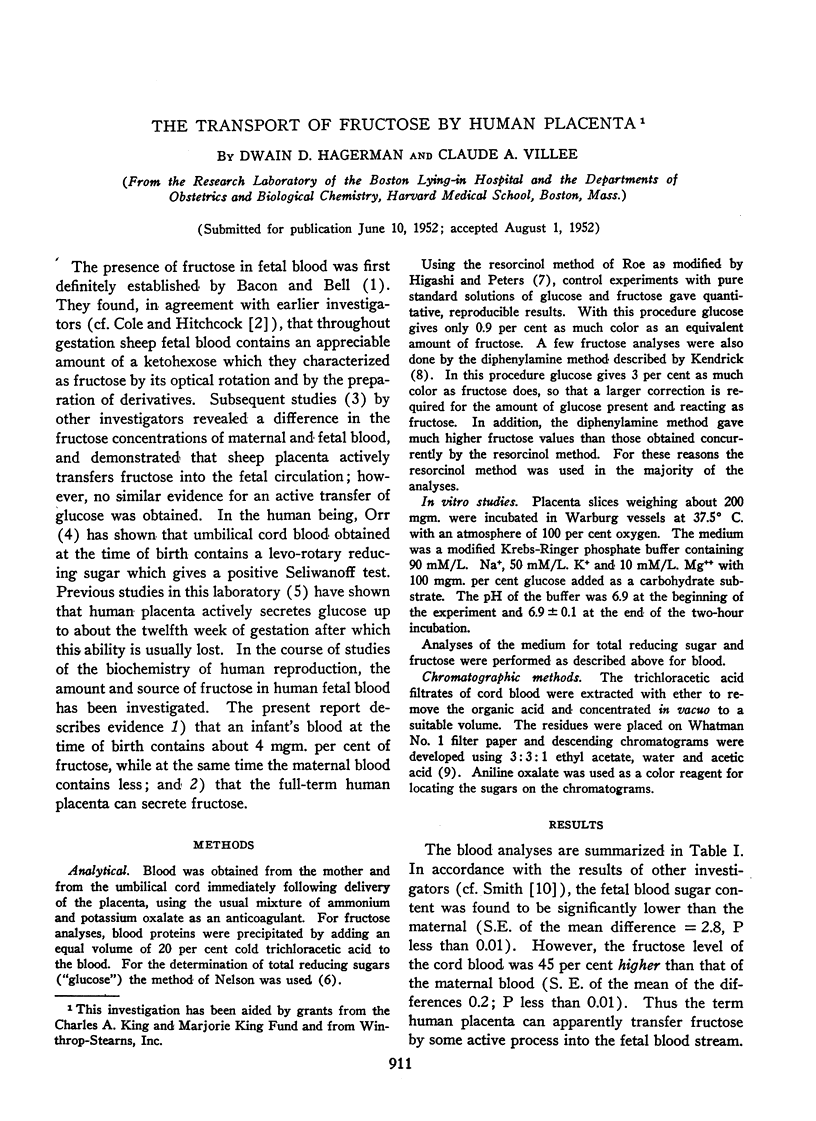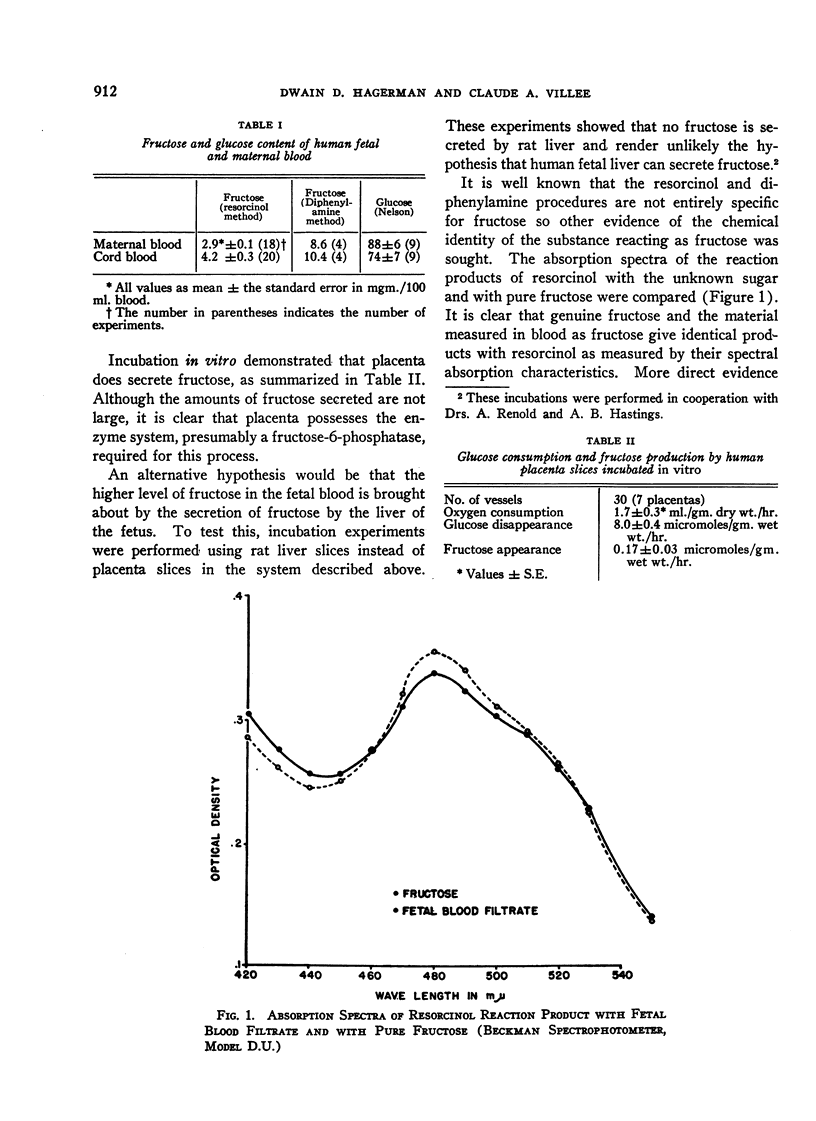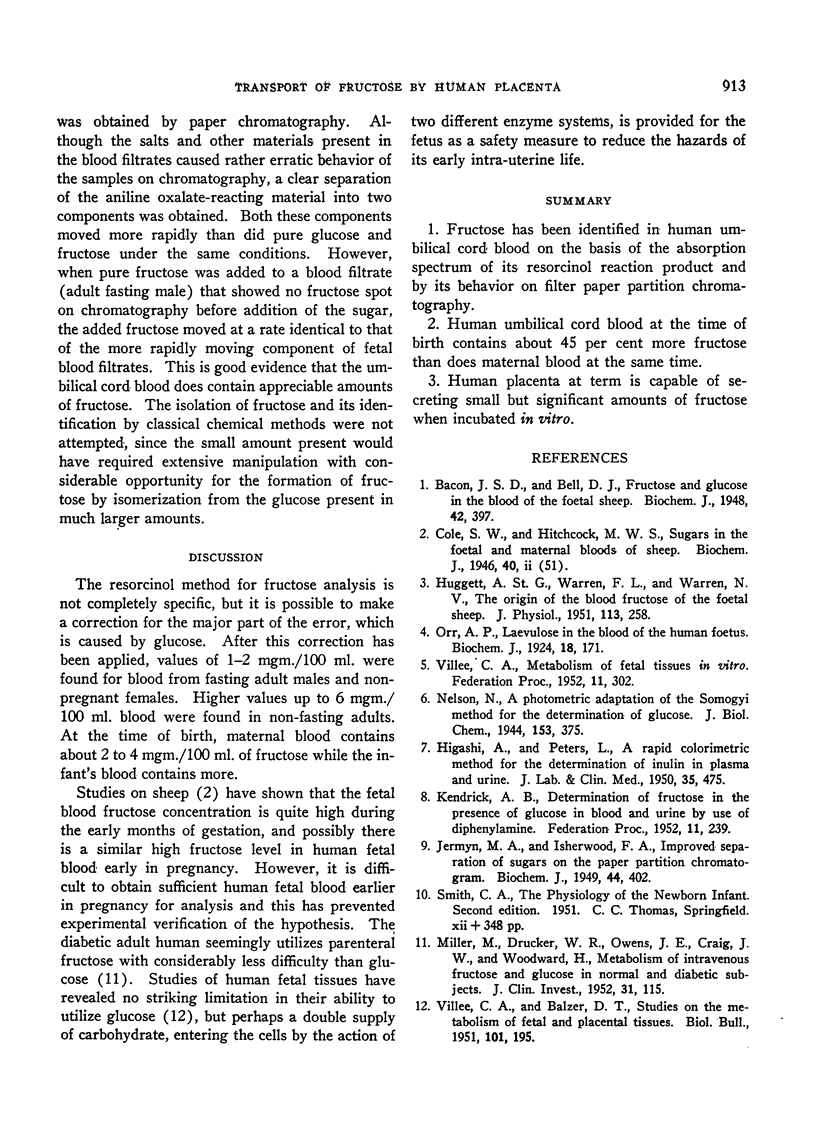Full text
PDF


Selected References
These references are in PubMed. This may not be the complete list of references from this article.
- Bacon J. S., Bell D. J. Fructose and glucose in the blood of the foetal sheep. Biochem J. 1948;42(3):397–405. doi: 10.1042/bj0420397. [DOI] [PMC free article] [PubMed] [Google Scholar]
- HUGGETT A. S. G., WARREN F. L., WARREN N. V. The origin of the blood fructose of the foetal sheep. J Physiol. 1951 Apr;113(2-3):258–275. doi: 10.1113/jphysiol.1951.sp004570. [DOI] [PMC free article] [PubMed] [Google Scholar]
- Jermyn M. A., Isherwood F. A. Improved separation of sugars on the paper partition chromatogram. Biochem J. 1949;44(4):402–407. doi: 10.1042/bj0440402. [DOI] [PMC free article] [PubMed] [Google Scholar]
- MILLER M., DRUCKER W. R., OWENS J. E., CRAIG J. W., WOODWARD H., Jr Metabolism of intravenous fructose and glucose in normal and diabetic subjects. J Clin Invest. 1952 Jan;31(1):115–125. doi: 10.1172/JCI102569. [DOI] [PMC free article] [PubMed] [Google Scholar]
- Orr A. P. Laevulose in the Blood of the Human Foetus. Biochem J. 1924;18(1):171–172. doi: 10.1042/bj0180171. [DOI] [PMC free article] [PubMed] [Google Scholar]



